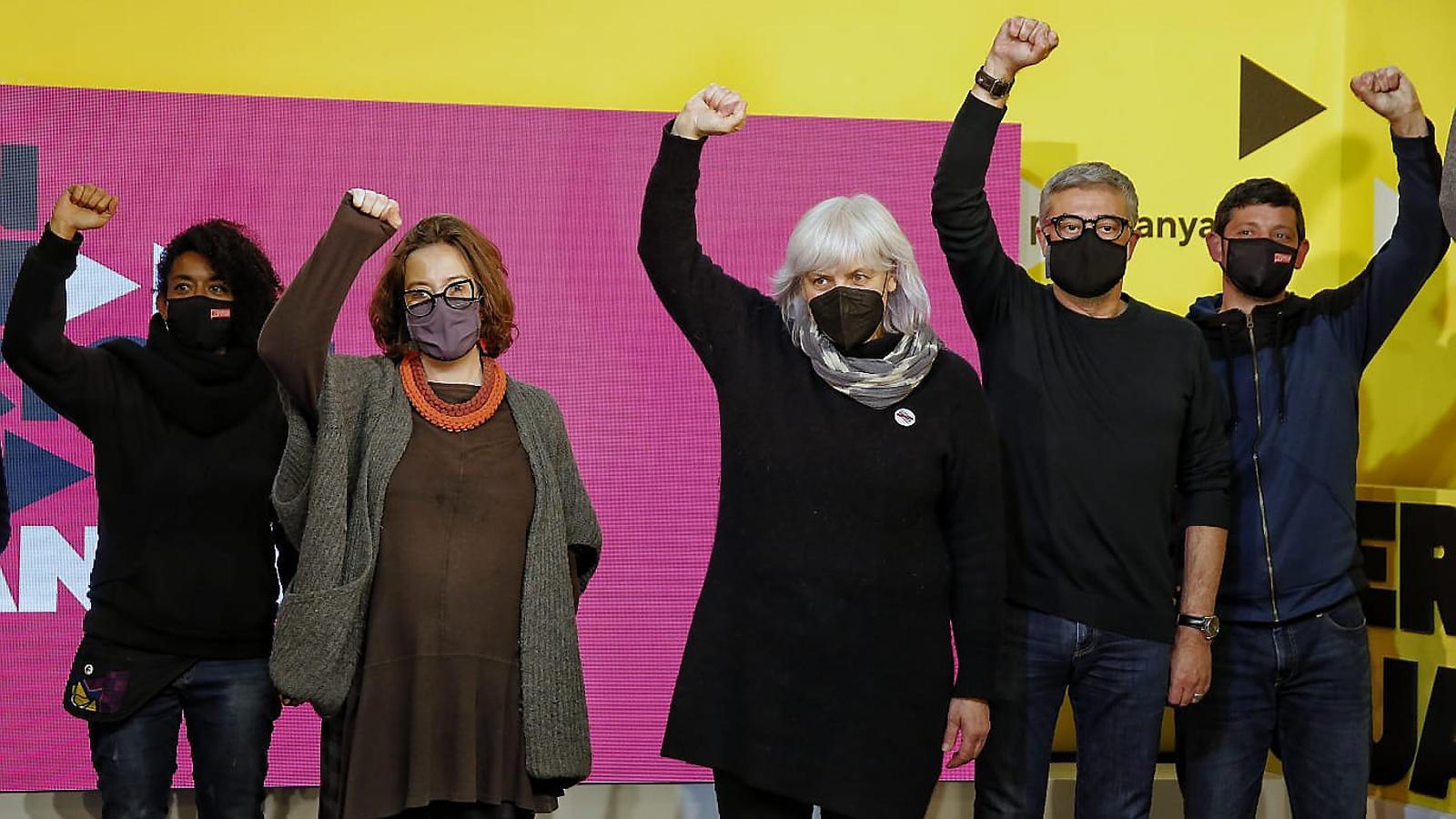CUP to demand Parliament speakership in exchange for investing Aragonès president
Sources in the anti-capitalist party believe joining Government difficult due to grassroot reluctance

CUP is not bluffing. They want to take advantage of the good hand dealt to them by the nine MPs they obtained in the elections and which have made them decisive for the investment of a new president. It has become known to ARA that CUP's demand to be in charge of the second most important institution in Catalonia is more important than entering the executive, and is a condition sine qua non to invest ERC's candidate, Pere Aragonès. In fact, the CUP has already suggested two names to command the institution: Dolors Sabater and Carles Riera.
"We will go all out," say sources of the formation, who admit that the final decision will depend on the willingness of ERC and JxCat to accept it. ERC have fuelled the debate by not promising the presidency to JxCat and have opened the door for the CUP to preside over it, while JxCat believes they ought to name the Speaker as they are the second largest pro-independence force. However, for Sabater or Riera take on this new post, they will also require the endorsement of the CUP grassroots. The internal debate, as ARA advanced, has already been launched this week with territorial assemblies and the political council on Saturday will allow us to know the members' position.
"Despite the misgivings that ERC and JxCat may have, we must battle to preside over Parliament because here is where rupture initiatives may arise and we are not afraid to assume resulting responsibilities," stress these same sources. The CUP defends the conflict with the State should end in a referendum before 2025. It is in this context that the CUP advocates for reinforcing the Parliament's sovereignty by deploying the social laws suspended by the Constitutional Court and mobilisations should they be challenged.
And this is where the CUP can step up. If a speaker does not comply with a Constitutional Court order - such as the one blocking Puigdemont's invesstiture after the previous elections - a new speaker could take their place. "We have 9 MPs who would be valid to become Speaker and to ensure that you can talk about everything, to deal with the constant interference of the Constitutional Court and in anti-fascist logic before the presence of the far right of Vox in the chamber," admit leadership sources, which are limited to the communiqués issued from the meetings between parties to avoid specifying whether the presidency of the Parliament is a red line in the negotiations.
Be that as it may, the anti-capitalist formation is very clear that now it does not want to repeat the mistake of investing Aragonès in vain as it did with Quim Torra in 2018. Then, the CUP, in an extraordinary political council, decided to abstain simply out of responsibility. "The political context of repression of a totalitarian state leads us not to block the investiture," argued the then spokesperson of the national secretariat, Lluc Salellas, despite criticising that the two major pro-independence forces' government programme did not advance in "the construction of republican or social measures".
Solomonic decision
Holding the presidency of the Catalan chamber but staying out of the Government would serve to show that the CUP assumes responsibilities and silence the criticism of those who accuse them of inaction, but at the same time it could also be a Solomonic decision that satisfies both those who advocate entering the executive and those who oppose it. The secretariat is aware of the reluctance of a large part of the rank and file to join the government, which resulted in a resolution passed just before the campaign that called for remaining in the opposition. A position that the secretariat subsequently agreed to postpone until after the elections so as not to interfere in the campaign or in future negotiations to form the new executive if they turned out to be key, as has in fact happened.
Despite positively assessing that the two major pro-independence forces agree to open the debate to analyse the police model following the action of the Mossos in the protests against the imprisonment of Pablo Hasel, other party sources stress that the Generalitat prosecuting Marcel Vivet, Forja and Guanyem Badalona militant, in the trial held on Monday and demanding he go to prison is a clear example of the "little room for manoeuvre" there will be to change the Catalan government's. Sources close to Poble Lliure, which advocates to influence the new executive directly, on the other hand, argue that limiting themselves to the Speakership but not assume responsibilities in Government is "wasting all the strength" that the citizenship has given them and that it is still a "comfortable position for the party, but not for the country".
